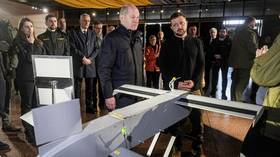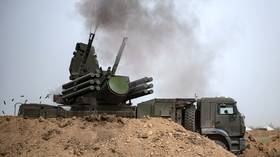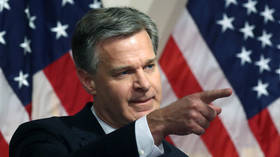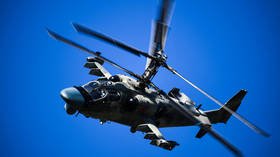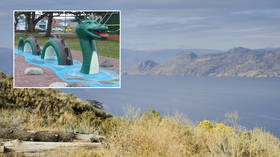Navalny uses meeting between EU officials & pro-West Russian opposition to call for sanctions on Kremlin-linked ‘oligarchs’
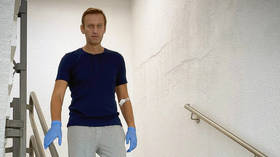
Alexey Navalny has called on the EU to impose sanctions on Russian “oligarchs,” rich businessmen he says are connected to the Kremlin. The opposition figure wants them to be prevented from keeping assets inside the 27-member bloc.
Navalny explicitly named Uzbek-Russian tycoon Alisher Usmanov and Israeli-Russian billionaire Roman Abramovich. Both men laid the foundations for their immense wealth during the Boris Yeltsin-era, when Western governments were encouraging privatization in Russia, and the country's integration into the global capitalist system. Finnish-Russian magnate Boris Rotenberg, who came to prominence after President Vladimir Putin replaced Yeltsin, was also mentioned.
The anti-corruption campaigner was speaking to members of the EU's Committee of Foreign Affairs during an “exchange of views with representatives of the Russian political opposition.” Despite the title, no members of Russia's largest opposition parties – the nationalist LDPR, communist KPRF or leftist Fair Russia – were present at the virtual discussion. Instead only pro-Western figures, with almost uniformly similar liberal views, were involved in the event.
They included Vladimir Kara Murza, a lobbyist at the US-government funded Free Russia Foundation, set up to “inform” American policy makers on the country; Vladimir Milov, a former deputy minister of energy, now closely allied to Navalny; and Ilya Yashin, a municipal deputy of the Krasnoselsky district of Moscow. Yashin is the only one of the four who actually holds an elected position.
Also on rt.com EU sanctions six senior Russian officials over Navalny 'poisoning,' claims they knew of alleged Novichok use on opposition figureDespite Navalny's claims, the Kremlin has repeatedly asserted that there are no longer “oligarchs” in Russia, with presidential spokesman Dmitry Peskov calling them “representatives of big business.” The president himself has also repeated this line, noting that no “large companies get preferential treatment from being close to the authorities” in modern Russia.
Meanwhile, the Kremlin has repeatedly asked for rich Russians to bring home money previously moved abroad, and has set up favorable tax rules to attract such capital.
According to Navalny, the current EU measures are not sufficient, since the people on the present sanctions list do not have property or accounts abroad. In his opinion, Eurocrats should aim to punish those who have moved their cash to foreign countries, such as Chelsea Football Club owner Abramovich.
“The main question we should ask ourselves is why these people are poisoning, killing, and fabricating elections,” the anti-corruption activist said. “And the answer is very very simple: money. So European Union should target the money and Russian oligarchs.”
In Navalny's opinion, nobody will take sanctions against Russia seriously if “oligarchs” can keep their yachts in European ports, naming Monaco and Barcelona as favored locations.
Also on rt.com Moscow claims Navalny poisoning clearly an 'amateurishly staged stunt' after EU governments ignore requests for evidence“Just tell Mr. Usmanov, Mr. Abramovich, Mr. Rotenberg, etc.: ‘Guys, you are acting against the Russian people, you are acting against Europe, you are all of the time advocating that Europe is something very bad, so please take your yachts and get them somewhere to the nice harbors of the (landlocked) Belarusian Republic,’” Navalny said.
Navalny called on the EU to welcome ordinary Russians with open arms, instructing them to focus on the most wealthy citizens. Earlier this year, the EU imposed sanctions on six senior officials they believe are responsible for August's alleged “assassination attempt” on the anti-corruption campaigner.
Those targeted were members of the presidential administration and FSB, who rarely go abroad and keep their assets inside the country.
On August 20, Navalny fell ill on a flight from Tomsk to Moscow. After an emergency landing in Omsk, Navalny was taken to a local hospital where he was placed in an induced coma. Two days later, the opposition figure was flown to the Charite clinic in Berlin at the request of his family and associates.
After testing, German toxicologists determined that the activist had been poisoned with a substance from the Novichok group of nerve agents. This claim has been denied by Russian doctors, who say that they did not find any trace of poison in his body. On September 23, Navalny was discharged from the hospital.
Think your friends would be interested? Share this story!




